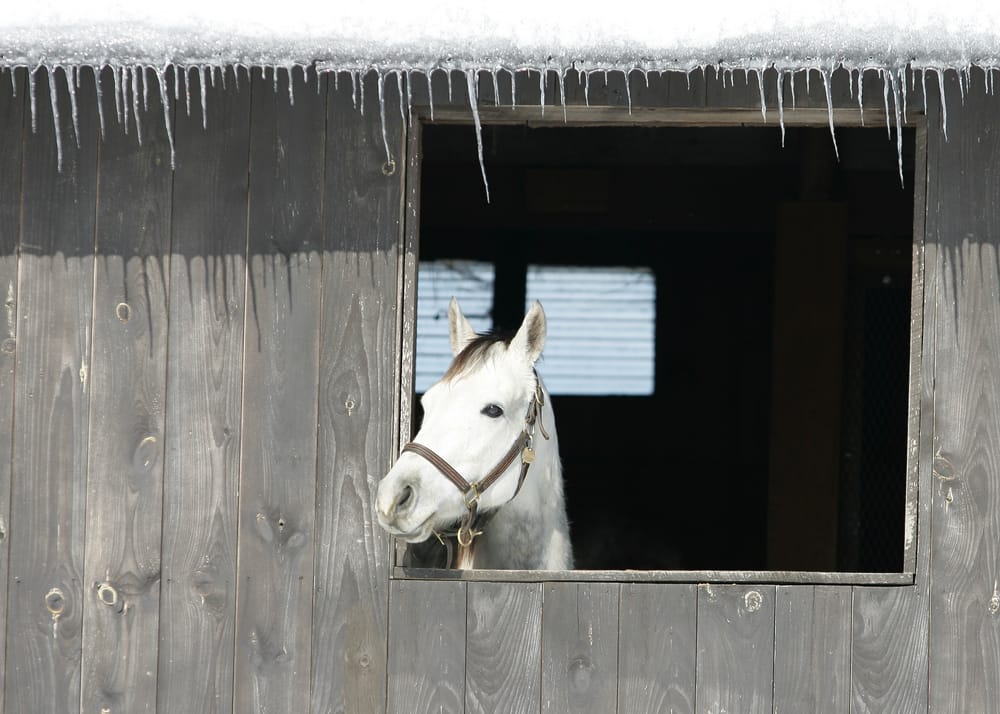Colic is often the horse–owner’s worst nightmare. Over winter our horses are often at increased risk of certain types of colic.
Vets see an increased incidence of impaction colic over winter. Most impaction colics are due to digestive contents becoming stuck within the colon or caecum, most frequently at the pelvic flexure. This is a narrow U-bend within the horse’s colon that acts as a ‘pinch-point’.
What causes impaction colic?
Most impaction colics are caused by reduced movement of the large intestine. A reduction in exercise, such as being stabled due to bad weather, can reduce motility within the colon and caecum. The digestive contents then move more slowly though the intestine, more water is reabsorbed, drying out the material. This can then result in the material becoming ‘stuck’ – an impaction. This causes abdominal pain (colic) and a reduction or complete absence of droppings being passed.
Other factors that can increase the risk of an impaction include reduced water intake (such as switching from grass to hay, or not drinking), cold weather or, rarely, neurological problems such as grass sickness.
So bad weather, poor grazing, increased time spent in the stable and a reduction in exercise can be a recipe for trouble.
How to reduce your horse’s risk over winter:
The key is to keep your horse moving, provide plenty of dietary moisture and check they are drinking. If bad weather hits and you need to stable your horse more than usual, make sure to walk them out at least three times a day. Even better, hand grazing while letting them stretch their legs will provide extra dietary moisture as well as promoting intestinal movement.
You can provide extra moisture through feeding a small amount of soaked un-molassed sugar beet with each meal. Beware of bran though – the traditional bran mash is actually not particularly high in fibre or nutrients and does not act as a laxative.
Check water intakes. Many horses do not like drinking ice cold water and if you have automatic drinkers it can be hard to monitor how much your horse is drinking. It may help to offer fresh, luke-warm water regularly or to make up a very sloppy bowl of soaked sugar beet.
Monitor droppings. Get to know how many droppings your horse would pass overnight, as well as the volume and consistency. Hard, pebble-like droppings, reduced volume or a reduced number of droppings can be a sign of trouble. If you notice any of these signs it may be worth asking your vet to check your horse.



